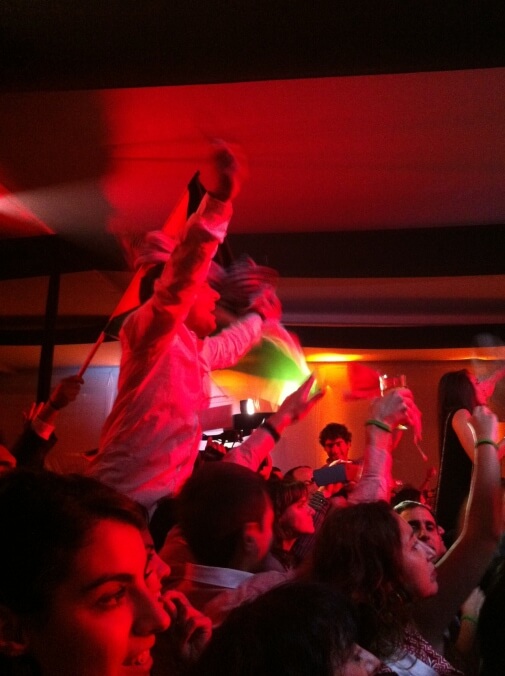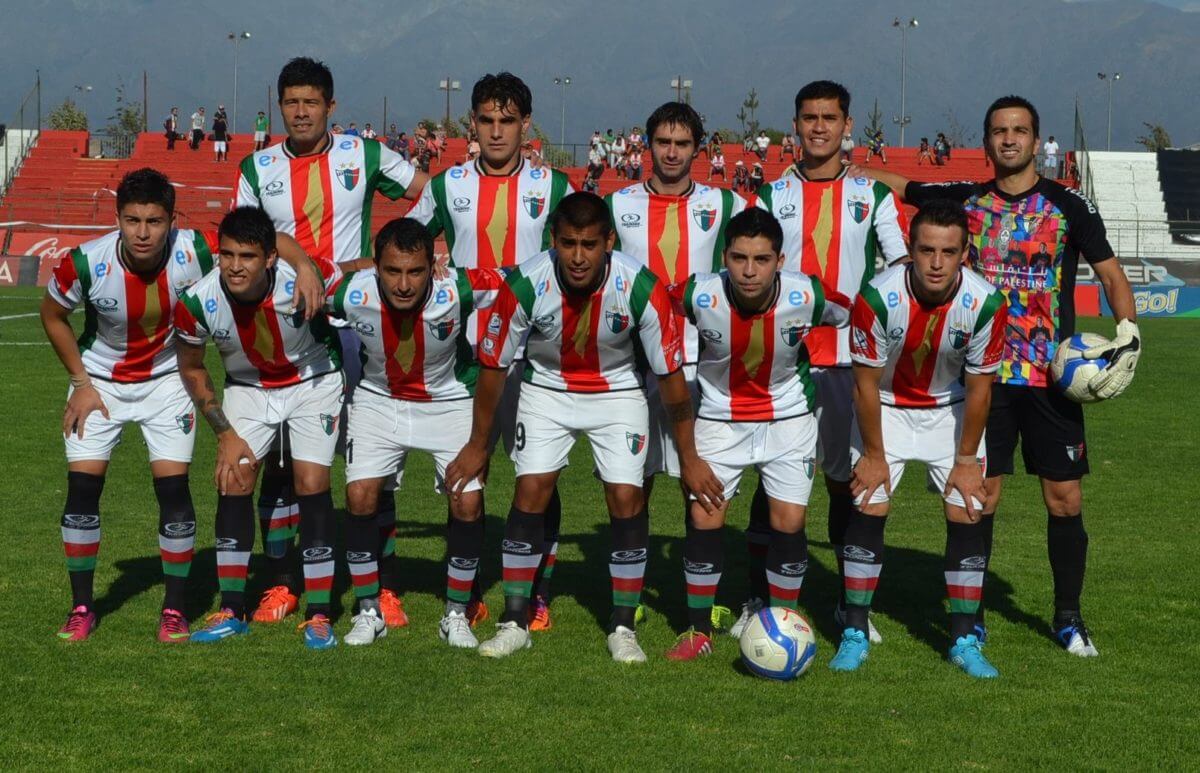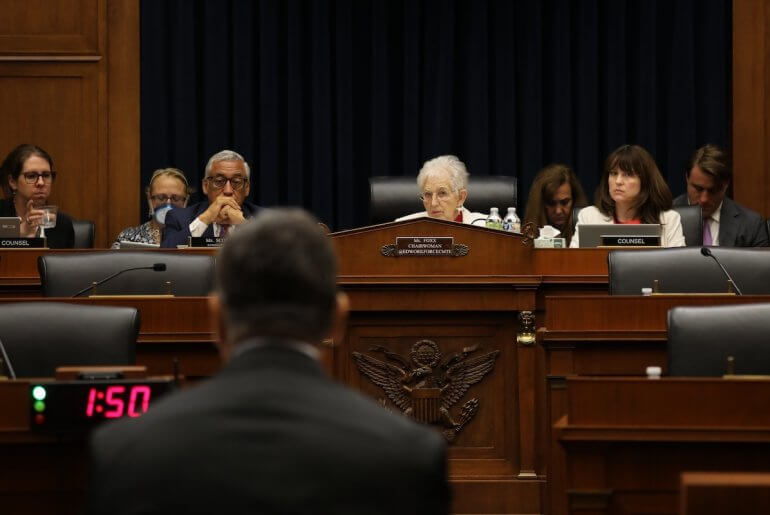Siri Schwabe conducted fieldwork in the Chilean capital from September 2013 to August 2014. Her thesis “Promised Lands. Memory, Politics, and Palestinianness in Santiago de Chile” explores how politics is practiced, experienced and talked about among Palestinian-Chileans. It shows how memories of political events and places in both Palestine and Chile shape diasporic practices and narratives. The following interview was conducted by Stockholm University’s Department of Social Anthropology.
Tell us about your interest and choice of subject for your thesis.
I started out with an interest in research on the Palestinian diaspora, but wanted to explore how Palestinians relate to the ongoing Palestinian struggle from beyond Palestine and the neighboring countries. When I learned that Chile, and Santiago in particular, had a large Palestinian population, the sheer unexpectedness of that fact, sent me off on a trajectory that has led me all the way to writing a dissertation on the subject. There was a fundamental curiosity at play, then, but I also wanted to challenge stereotypes and show that being – or perceiving oneself – as Palestinian can take on various meanings and expressions and have different consequences within different contexts. I wanted to broaden our understanding of what Palestinianness is and how it plays out, especially in the context of diaspora.
For how long has there been a Palestinian presence in the Chilean capital?
The first Palestinian immigrants came to Chile either across the Andes or by sea in the latter half of the 19th century, and many more followed in the years leading up to World War I as the Ottoman Empire was coming to an end. A lot of families feared for the lives of their young men as military service became mandatory in Ottoman-ruled Palestine, and especially Christian Palestinians were afraid that they were going to be used as cannon fodder by the Muslim Ottomans. As a result, the largely Christian communities in the area around Bethlehem, and in particular from the village of Beit Jala, began sending their sons abroad. Via different trajectories a lot of them ended up in Chile, and were subsequently joined by family members. Throughout the decades since then, more and more Palestinians have arrived to Santiago and other parts of Chile, some from exile in other countries.
What distinguishes the Palestinian presence in Santiago from its counterpart in other cities in South and Latin America? Is there anything “typical Palestinian-Chilean”?
Although there are of course Palestinians spread out across Latin America and beyond, Chile is widely believed to be home to the largest Palestinian population outside the Arab world. There is some uncertainty when it comes to exact numbers, but the general understanding is that there is up to half a million Chileans of Palestinian ancestry on either one or both sides of their family. That alone means that the Palestinian presence in the capital of Santiago is much more notable than in other Latin American cities. A lot of the Palestinian immigrants originally settled down in the neighborhood of Patronato in central Santiago, and this neighborhood is still full of Palestinian-owned shops and factories, not to mention restaurants specializing in Palestinian food. There are lots of Palestinian flags and Palestinian imagery along the streets there, and there’s even a Palestinian church in the centre of the neighborhood.
Now, what I find particularly interesting is how Palestinian-Chileans take care to maintain their heritage and engage politically with the Palestinian struggle within a context that’s still very much marked by the condition of post-dictatorship following the era of Chilean military rule between 1973 and 1990. So one of the things I’ve been trying to get at in my dissertation is how politics are managed within the field of tension between Palestinian diasporicity and the particular context of Santiago and Chile.
How has the Palestinian-Chilean identity changed over time?
What Palestinians call the Nakba – the catastrophe – gave new meaning to being Palestinian in diaspora around the time of the establishment of the Israeli state in 1948. Before then, Palestinians in Chile had largely understood themselves as Palestinians, but there was a bigger focus on being part of a wider Arab community. With the onset of the Nakba, claiming a Palestinian identity became a political act and was even seen as an act of resistance. Another pivotal moment came with the 1982 massacres in the Palestinian refugee camps Sabra and Shatila in Lebanon. This atrocity politicized a lot of the work being done within Palestinian-Chilean organizations, and the two intifadas – or uprisings – that took place in Palestine later on only furthered this tendency.
Tell us about your fieldwork. Was it easy to get into the Palestinian-Chilean community and networks?

There are quite a few well-established Palestinian places and organizations in Santiago, so there was already a certain infrastructure in place when I began my fieldwork, and that made it fairly easy for me to locate entry-points into the field. Early on I joined activities within several institutions and I was always welcomed with open arms. Almost everyone I met during fieldwork seemed genuinely excited about my research, albeit mixed with some confusion as to what I was actually doing, and I was lucky to experience that level of support and enthusiasm. Because most of the people I worked with were so committed to their Palestinian roots and to taking an active stance in the Israeli-Palestinian conflict, I think I was often seen as someone who might help call attention to their existence and, by extension of their commitment, the Palestinian cause.
The football team Club Deportivo Palestino plays an important role in your thesis. Why?
Besides having turned me into someone who actually cares about football, Palestino is an immensely important institution in this context. For people who live in the district of La Cisterna where the club has its home turf, it’s a source of local pride. But at the same time, for Palestinian-Chileans the Palestino football team is a testament to the long Palestinian presence in Chile and to the strong bond that still exists between the homeland of their ancestors. It was always commonly believed that Palestino was established in 1920, but actually the first Palestinian sports club was formed in Santiago in 1916, so Palestino has a long and proud history in the Chilean capital. The team usually plays great football and is among the best professional teams in the Chilean first division, but its importance does not limit itself to the domain of sports.
To many of the team’s players and fans, what makes Palestino so special is that it represents Palestine, and the symbolic value and political potential of that is constantly highlighted. Even in Palestine, lots of people follow the team and celebrate when they do well. So it has really become a gathering point for Palestinians across borders.

How do Palestinian-Chileans relate to the conflict between Israel and Palestine? And what role can they play in the conflict?
The Palestinian struggle is still one of the main rallying points for Palestinian-Chileans, and most of the people I worked with in Santiago are very active when it comes to advocating for Palestinian rights and spreading news about what’s going on in Palestine. One of the most active organizations in this regard is the Chilean chapter of the General Union of Palestinian Students – they regularly organize protests and events, and work to mobilize students to take an active stance against the Israeli occupation. The BDS (Boycott, Divestment and Sanctions) movement is also gaining more and more traction in the Chilean context and their campaigns have gotten quite a bit of attention.
When we look beyond grassroots efforts, there’s actually quite a lot of support for Palestine at parliamentary level in Chile, something that is certainly connected to the presence of Palestinian-Chilean politicians and interest groups. Just recently (November 28) a lawsuit was filed in Santiago against three Israeli Supreme Court justices for authorizing the construction of the large separation wall on the West Bank, more specifically in the area around the village of Beit Jala. This area is historically connected to Chile in that a lot of Palestinian-Chileans can trace their families back to it. In the present case, the claimants in the suit are five Chilean nationals and one Palestinian who own land that will be cut off from the village if the barrier goes up. In that sense, the Chile-Palestine connection can have very tangible ramifications.
Memory, place and politics. Why are these concepts central to the understanding of how the Palestinian presence is manifested in Santiago?

I think that one of the main theoretical contributions of the dissertation is that it problematizes the relationship between memory and space as well as how this relationship works in tandem with political engagement or lack thereof. In Santiago, what I saw and heard was that Palestinian-Chileans to a great extent avoided engaging with the potentially divisive politics of post-dictatorship Chile in order to keep a tight focus on their joint commitment to Palestine. At the basic level then, there is a tendency to forget domestic issues and instead always take care to remember Palestine and the Palestinian struggle. But the importance of memory runs deeper than that. What I try to show in the dissertation is that keeping Palestine present, as it were, is a political project that is very much tied up in engaging with memories of a Palestinian past that very few of the people I know in Santiago have actually lived through – while at the same time taking part in a sort of mindful forgetting of the troubling aspects of the Chilean era of dictatorship and its present consequences.
To understand this tendency I employ the concept transmemory to explore how memory can be understood to travel, in this case between Palestine and Chile. So the sort of memory I deal with in the dissertation is essentially spatially mobile, but relies at the same time on space for both articulation and reference. What I mean with that is that the memory work that is undertaken among Palestinian-Chileans always plays out within certain places in Santiago while it almost always references particular Palestinian places or the land of Palestine more generally. In that sense, the politics forged among Palestinian-Chileans to a great extent hinge on both space and memory, but the connections are often ambiguous and contentious.
You describe in detail how and what Palestinian-Chileans remember. But what do they dream about?
Everyone I got to know during my fieldwork would without a doubt say that they dream of an end to the Israeli occupation and a free Palestine. Some people talked about wanting to move to Palestine, at least for a while, and those who had never been able to go there often said they wish they would be able to visit someday. The Palestinian-Chileans I know are Santiaguinos through and through, however, and share dreams that are well known to most people in the city and beyond and that often revolve around building careers and simply being surrounded by a happy and healthy family.
Siri Schwabe
Siri Schwabe is a PhD Candidate in Social Anthropology at Stockholm University and will soon be defending her thesis on politics, memory, and Palestinianness in Santiago de Chile. Her work is based on long-term ethnographic fieldwork in the Chilean capital where she lived from 2013 to 2014. Siri also holds an MSc in Anthropology from the University of Copenhagen and has spent time as a visiting researcher at SOAS, University of London and the Pontifical Catholic University of Chile in Santiago.




thank you! what an interesting interview. i just became aware of the significant palestinian diaspora community in chile in the last few years. first through the futbol palestino and later when mohammed assaf visited. but nothing prepared me for the size of the protest in santiago during the 2014 gaza slaughter. that is when i realized how important palestine was in chile and the influence of palestinian diaspora there. i’d like to visit chile someday and when i do i will visit Patronato neighborhood in santiago!
(the 8th photo from the top): https://mondoweiss.mystagingwebsite.com/2014/07/worldwide-protest-israeli/